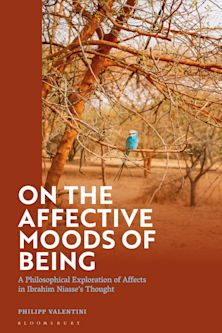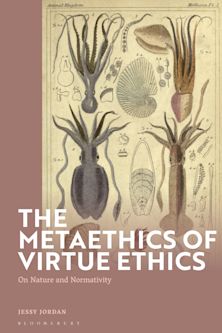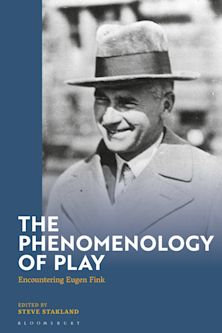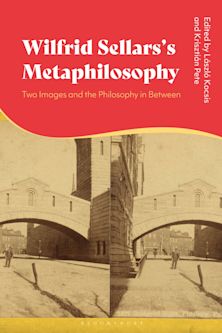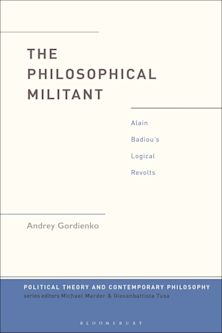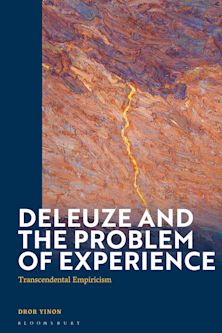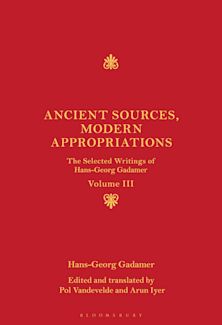This product is usually dispatched within 3 days
- Delivery and returns info
-
Free US delivery on orders $35 or over
Description
Widely regarded as one of the foremost cultural critics of the last century, Walter Benjamin's relation to Modernism has largely been understood in the context of his reception of the aesthetic theories of Early German Romanticism and his associated interest in avant-garde Surrealism. But this Romantic understanding only gives half the picture.
Running through Benjamin's thought is also a critique of Romanticism, developed in conjunction with a positive engagement with the philosophical, artistic and historical writings of J. W. von Goethe. In demonstrating the significance of these Goethean elements, this book challenges the dominant understanding of Benjamin's philosophy as essentially Romantic and instead proposes that Goethe's Classicism, conceived as the counterpoint to Romanticism, permits a corrective to the latter's deficiencies. Benjamin's Modernist concept of criticism, it is argued, is constituted in the movement between these polarities of Romanticism and Classicism.
Conversely, placing Goethe's Classicism in relation to Benjamin's practice of literary criticism reveals historical tensions with Romanticism that constitute the untimely – indeed, it will be argued, cinematic – Modernism of his work. Adopting a transcritical approach, this book alternates between Benjamin and Goethe in relation to the experiences of colour, language and technology, assembling a constellation of philosophical and artistic figures between them, including the writings of Kant, Nietzsche, Cohen, Deleuze, Koselleck, Klages, and the work of Grünewald, Marées, Klee, Turner, Hulme, Eisenstein, Tretyakov, and Murnau.
Table of Contents
1. Criticism, Transdisciplinarity and Transcriticism: Walter Benjamin and the Kantian Tradition
i. Literary Criticism and Aesthetic Judgement
ii. Transcriticism and Non-Synthetic Judgement
iii. Contingent Criticism and Teleological Judgement
2. Weak Messianism in German Romanticism
i. Literary Criticism as Messianic Reflection
ii. Weak Messianism: Formalism, Affirmationism, Singularity
iii. Aestheticentricism and Problems of the Romantic Imagination
3. Strong Aesthetics in Goethe's Tender Empiricism
i. Aesthetics of Science: Critique of Sensibility
ii. Teleological Pessimism: Ephemerality and Multiplicity
4. Pure Content: the Ephemerality of Colour
i. Goethe's Colour Theory: Nature
ii. Benjamin's Colour Theory: Phantasy
iii. Expressionist Colour (I): Grünewald and Marées
iv. Expressionist Colour (II): Klee and Turner
5. Pure Expression: the Violence of Criticism
i. Translating the Pure Word
ii. Expressionist Language (I): Goethe's Elective Affinities
iii. Expressionist Language (II): T. E. Hulme's Imagist poetry
6. Pure History: the Untimeliness of Technology
i. Goethe's Untimeliness: Nietzsche, Koselleck and Benjamin
ii. Expressionist Technology (I): Klages, Marx and the Soviet Avant-Garde
iii. Expressionist Technology (II): Cinematic Modernism in Goethe's Faust
Afterword: All that is ephemeral… becomes an Event
Product details

| Published | Jun 17 2021 |
|---|---|
| Format | Paperback |
| Edition | 1st |
| Extent | 240 |
| ISBN | 9781350267374 |
| Imprint | Bloomsbury Academic |
| Dimensions | 9 x 6 inches |
| Series | Walter Benjamin Studies |
| Publisher | Bloomsbury Publishing |
Reviews

ONLINE RESOURCES
Bloomsbury Collections
This book is available on Bloomsbury Collections where your library has access.












